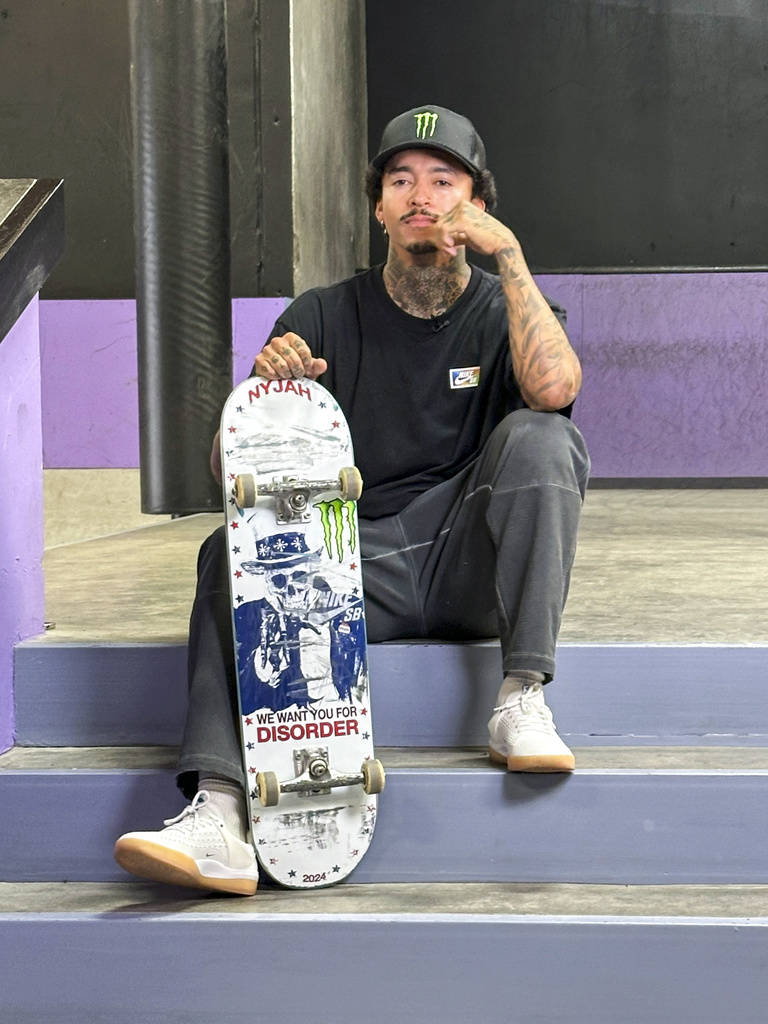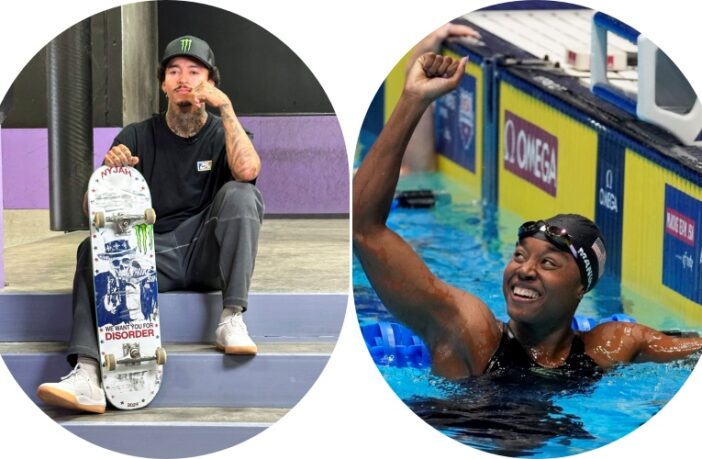By Jennifer Porter Gore
Word in Black
Overview:
For years, Black Olympians dominated in sports like track and field and basketball. But a new generation is breaking through in so-called “country-club sports” that typically aren’t available to young Black athletes.
With the 2024 Olympic Games underway in Paris, France, the powerful United States swimming team will be heavily favored — again — to win the lion’s share of medals in the pool. It holds the all-time record for gold medals with 257; second-place Australia has just 69.
While winning medals is old hat, however, the swim team will make history when it walks into the Paris Olympic Aquatic Centre in Saint-Denis. That’s because Anthony Nesty, a former Olympic swimmer, is Team USA’s first Black swimming head coach.
“I’m very proud of what I’ve done in my career, especially leading young men and women to perform at a very high level,” Nesty said in an interview with NBC 6, a local TV station in South Florida. “It’s a great honor, and with that comes a lot of pressure, too. I’m looking forward to the challenge and looking forward to representing the USA the best way I can.”
In fact, Nesty is one of several elite Black athletes from Team USA competing in events in which the competition is overwhelmingly White. Black athletes are competing in fencing, volleyball and skateboarding, among other sports.
Besides Nesty — a U.S. resident born in Suriname who in 1988 was the first Black swimmer to win an Olympic gold medal — the U.S. swimming team includes Simone Manuel, a Black woman and gold medalist in the 2016 Rio Olympics.
Simone Manuel reacts after winning the Women’s 50 freestyle finals June 23, 2024, at the US Swimming Olympic Trials in Indianapolis. (AP Photo/Darron Cummings)
At the time, Manuel made sure she acknowledged other elite Black competitive swimmers who paved the way for her, like Cullen Jones and Maritza Correia. But she also said she carries a burden in the pool that White swimmers don’t.
“The gold medal wasn’t just for me, it was for people who came before me and inspired me to stay in the sport,” she told Andscape Magazine just after the 2016 Games.
“I’m super glad I can be an inspiration to others and hopefully diversify the sport,” she said. “But at the same time, I would like there to be a day where there are more of us, and it’s not ‘Simone the black swimmer.’ The title ‘black swimmer’ makes it seem like I’m not supposed to be able to win a gold medal, or I’m not supposed to be able to break records. And that’s not true.”
Lauren Scruggs, a star of the U.S. women’s fencing team, followed her brother into the sport; Nolen Scruggs is a member of Columbia University’s fencing team. “My brother did it, so I also gave it a try,” she said.
A Harvard University junior, Lauren Scruggs is the 2022-2023 NCAA Women’s Foil Champion and before attending the university had become the youngest U.S. foil fencer to win a Junior World Championship. She also was one of just two Black Americans — male or female — to win an individual world title.
The men’s U.S. fencing team will include returning Olympian Miles Chamley-Watson. Born in London and raised in the U.S., Chamley-Watson returned to the U.K. in 2012 to compete in the London Games. He also won a Bronze medal in Rio in 2016.
“Tiger Woods was like my Michael Jordan. He made people want to watch golf, he made me want to watch golf, in a sport that was predominantly white,” he told the Anti-Blueprint Project website. “I could really relate to that.”
Woods’ journey “showed me that whatever your passion is, as long as you, like, put in the work and don’t care about how hard the journey is,” you can make it on your own terms, Chamley-Watson said. “What I’ve learned is, if I can get to the top, I can bring whoever the hell I want with me.”
The U.S. women’s volleyball team has two Black members: Rachael Adams, a member of the 2016 bronze medal-winning team, and three-time Olympian Foluke Akinradewo Gunderson.
The daughter of a former NBA player, Adams says being a Black woman in a White sport hasn’t been easy. Many of her teammates had never interacted with a Black person before.
 Nyjah Huston poses with his board at his private skate park in San Clemente, Calif., June 12, 2024. (AP Photo/Greg Beacham)
Nyjah Huston poses with his board at his private skate park in San Clemente, Calif., June 12, 2024. (AP Photo/Greg Beacham)
“Navigating my identity as a Black woman and athlete in a predominantly white sport has been difficult,” Adams told Darling magazine in a 2020 Q-and-A interview. “My (white) teammates have good intentions, but you don’t know what you don’t know. It has taken me growing up to figure out that my identity is not in people. No matter what I do, no matter what music I listen to or how I speak, I am Black.”
The Black competitors on the U.S. women’s boxing team are competing for just the fourth time in Olympic history. That’s because women weren’t allowed to box competitively at the Olympics until 2012. The Olympic Games Paris 2024 will feature a total of 13 weight divisions, six for women and seven for men.
This year’s team members include prior winners and first-timers: NaShay Bradford, Ravven Brown, Sa’Rai Brownell, Briana Che, Zhane Crockett, Rashida Ellis, Naomi Graham, Oshae Jones, Morelle McCane and Claressa Shields.
Champion skateboarder Nyjah Huston will attempt to win his first Olympic medals in Paris. He placed seventh in the 2020 Games in Tokyo when skateboarding was first introduced as an Olympic sport.
Huston got into the sport at age 5 through his father, a strict Rastafarian and an avid skateboarder who incorporated it into his family’s lifestyle. He even purchased an old skatepark for easy access to a practice facility.
“Skateboarding became a family business and I skated six days a week with my father and brothers at our indoor skatepark,” Huston said in an interview with NBC Sports. “Other than riding a bike and shooting hoops with my brothers at the neighborhood park, I never played any other sports as a kid. Skateboarding was our life, so I didn’t really have a choice.”
Jennifer Porter Gore is a writer living in the Washington, D.C., area.
This article was originally published on WordinBlack.com.



